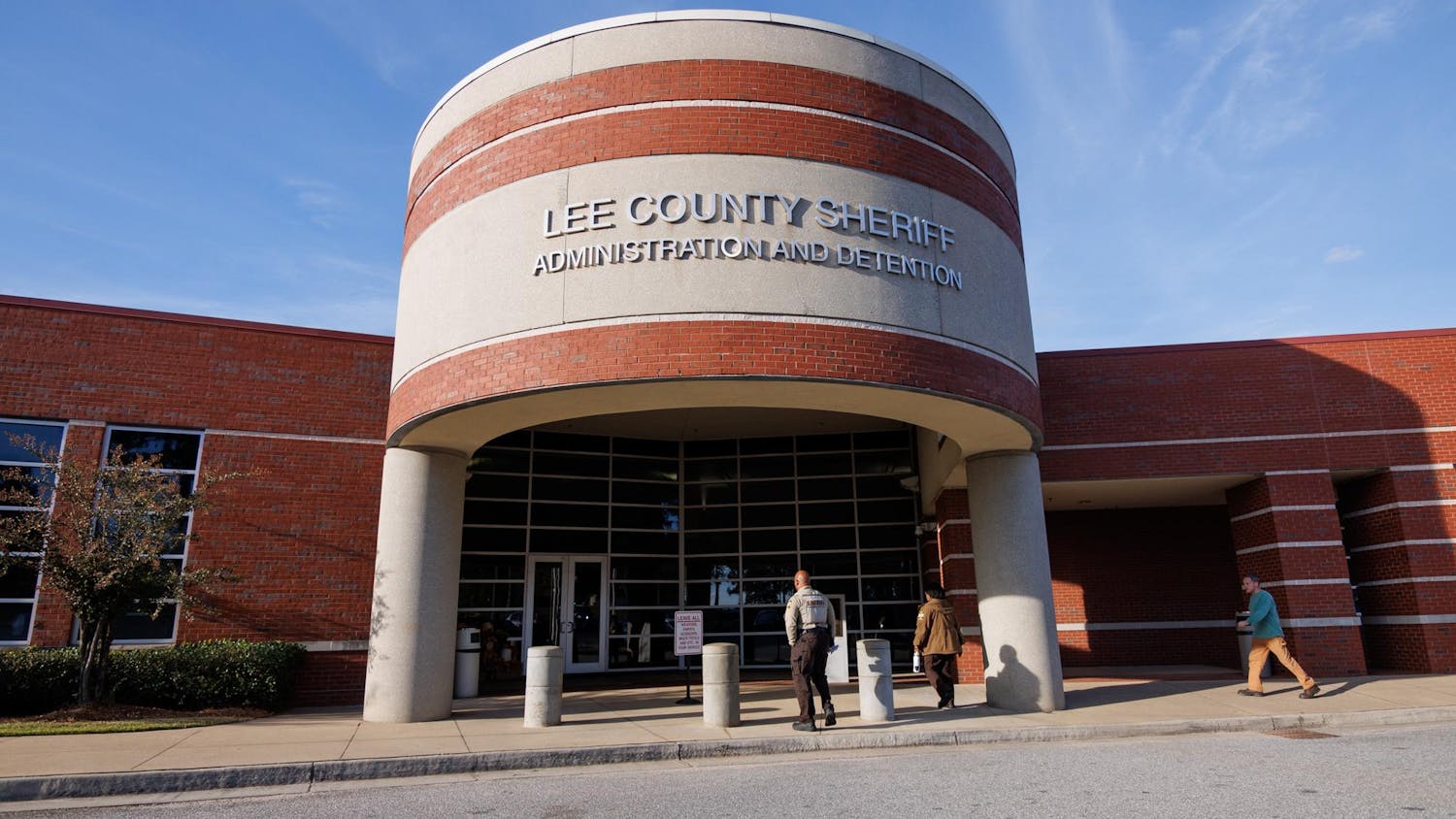A Pulitzer Prize-winning journalist discussed the coverage of racial struggles during the Civil Rights Era to a packed auditorium at the Jule Collins Smith Museum of Fine Art on Wednesday, April 15.
Hank Kilbanoff, this year’s speaker for the 18th annual Neil O. and Henrietta Davis Lecture, is co-author of the 2007 Pulitzer Prize-winning “The Race Beat: The Press, the Civil Rights Struggle, and the Awakening of a Nation.” He is a native of Florence and has worked as managing editor of the Atlanta Journal-Constitution and deputy managing editor of The Philadelphia Inquirer.
He is now the James M. Cox Jr. Professor of Journalism at Emory University, where he also serves as the director of the Georgia Civil Rights Cold Cases Project.
Klibanoff focused on cold cases of the Civil Rights Era and their continued importance in his lecture, “The Past is Never Dead: Civil Rights Cold Cases and Why They Matter.”
“We’re talking about unsolved murders from our past — unsolved, unresolved, unpunished — as a way of understanding our history,” Klibanoff said. “I truly believe that if we don’t understand these things, we don’t understand why this person’s acting the way they are … and, until we can understand that, we can’t crack the code of our misunderstandings.”
Klibanoff also stressed the importance of understanding the different faces of terrorism, as well as acknowledging the past and working to understand the mindsets of the opposite race.
“This is our past and we just have to acknowledge it,” Klibanoff said. “We have to acknowledge, if we’re white, that blacks have a completely different take on this; and if we’re black, we have to try to understand what was going on in these white people’s minds and where the good people were.”
One case Klibanoff focused on to illustrate his points was the case of James Brazier, which is the spotlight case in this year’s Cold Cases Project at Emory. Brazier was a 31-year-old African American man in Dawson, Georgia, who died in 1958 from lack of care to injuries sustained from being hit by police officers.
“The whole racial etiquette in the South made it difficult for a black person to walk down the street and even look a white person in the eye,” Klibanoff said. “You just couldn’t do it.”
After a long struggle to bring civil case to light, Brazier’s wife lost despite convincing witness accounts. The goal of students involved in the Cold Cases Project is to understand cases such as these and do some investigating of their own. The students succeeded in tracking down a living witness and gaining new insight into the James Brazier case.
“It was really engaging for me, and it helped me to understand it more,” said Shelby Baker, junior in public relations. “Growing up in Alabama and being from Birmingham, we’ve heard our entire lives all about civil rights because it is our history. It was cool to hear a different side of it, like the cold cases, because a lot of times people don’t talk about that because it is a dark part of our history.”
Hayden Sisk, junior in public relations and another Birmingham native, also liked delving deeper into the civil rights struggles Klibanoff discussed.
“(The lecture) was more uncovering and a different aspect of it, so I thought that was really cool and rewarding to see,” Sisk said.
Audience member Lois Carter said she enjoyed the lecture and the importance placed on cold cases. She also said she found it interesting as someone who was born in Alabama, but grew up in the North where civil rights struggles were not as serious.
The Neil O. and Henrietta Davis Lecture, an annual series established by Neil Davis, seeks to expose Auburn journalism students to distinguished professionals in their field. It was established by Neil Davis, a 1935 Auburn graduate and former editor of The Auburn Plainsman.
Do you like this story? The Plainsman doesn't accept money from tuition or student fees, and we don't charge a subscription fee. But you can donate to support The Plainsman.




